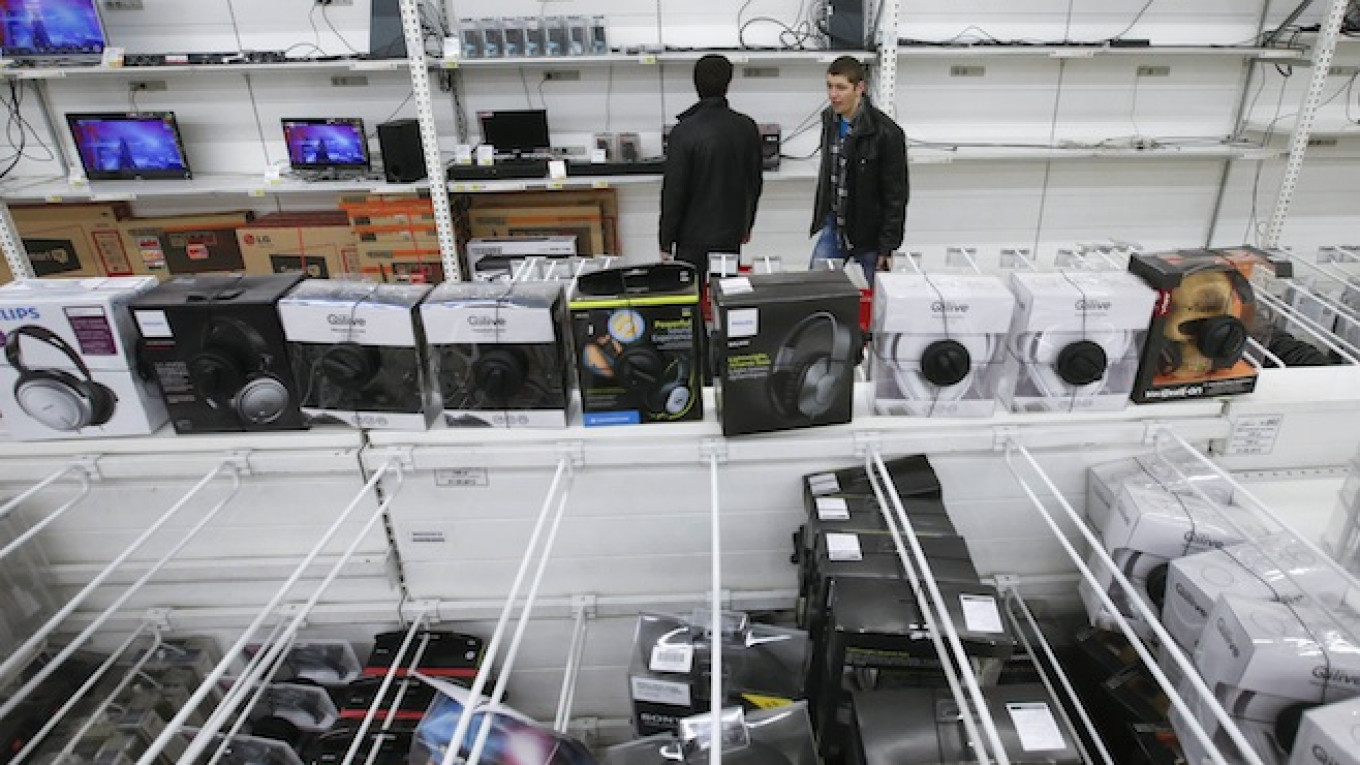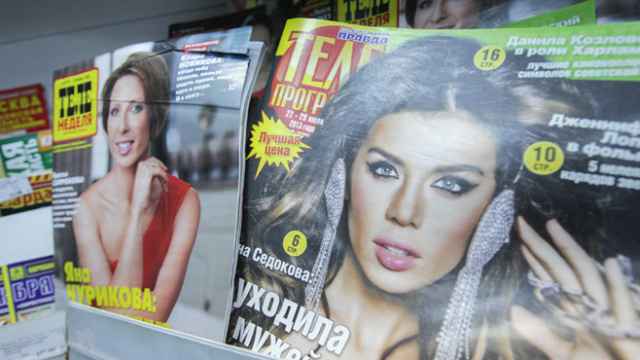With December's massive consumer spending spree giving way to cautious saving as ruble devaluation eats away at Russians' salaries, analysts are pessimistic on the short- to medium-term perspectives of the country's retailers.
The ruble's steep slide slipped into headlong tumble in mid-December, provoking a sales boom in consumer electronics as Russians hastened to exchange their diminishing savings into something tangible.
With some people panic buying several television sets each, retailers reported record sales. M.video, one of Russia's leading electronics retailers, said last week its overall sales last year grew 19 percent year-on-year, driven by a more-than-50 percent rise in December. Online sales soared 90 percent for the year.
Russia's largest online electronics retailer Ulmart said its sales last month grew by 20 percent. On Dec. 17 — a day after the ruble had lost a quarter of its value in 36 hours — the company sold 400 million rubles ($6 million) worth of goods — an all-time record for the company.
But what goes up must come down, said Vladimir Biryukov, a partner at consulting firm Deloitte — last December many consumers bought what they were planning to purchase this year.
That alone suggests slower retail sales in 2015, but with cheap oil continuing to devalue the ruble and inflation outpacing salary growth, Russians' purchasing power is falling.
"Our outlook for this year is pessimistic," said Natalya Kolupayeva, retail and consumer market analyst at Raiffeisenbank. "On the one hand, the weakening ruble increases the cost of imported goods, accelerating inflation. On the other hand, salaries are not growing at the same pace."
Price inflation soared past 11 percent last year, and analysts say it could climb as high as 15 percent this year.
Unemployment is also growing as companies strive to cut costs amid an oncoming recession.
Sources in the Labor Ministry told the RBC news agency last week that they expected the number of jobless to grow by 650,000 this year to reach 1.6 million. Analysts interviewed by the agency said the unemployment rate in 2015 could reach 8 percent, up from the current 5.5 percent.
According to state statistics service Rosstat, the consumer confidence index, which reflects people's overall expectations of the country's economy, fell 18 percent in the last quarter of 2014.
The percentage of people who viewed current changes in the economy as negative rose to over 50 percent from 31 percent in the previous quarter, Rosstat data show.
Deloitte's New Year Spending Survey on consumer preferences and future expectations revealed that despite the spending spree, last year saw the percentage of consumers who felt their purchasing power decrease — 38 percent — surpass those who said they could buy more for the first time in recent years.
Only young people aged between 18 and 24 felt their purchasing power increase last year, Deloitte's survey found.
"As we see a decline of disposable income and high inflation for imported products we expect a difficult retail environment in 2015 with customers reducing or postponing luxury and non-food purchases and trading down of food sales," said Martijn Peeters, a partner at consulting firm PriceWaterhouseCoopers Russia.
The most pressure will be on those with lower footfall and sales per customer, he said, and some retailers will be forced to cut costs to make up for the decreased sales volumes.
Contact the author at a.panin@imedia.ru
A Message from The Moscow Times:
Dear readers,
We are facing unprecedented challenges. Russia's Prosecutor General's Office has designated The Moscow Times as an "undesirable" organization, criminalizing our work and putting our staff at risk of prosecution. This follows our earlier unjust labeling as a "foreign agent."
These actions are direct attempts to silence independent journalism in Russia. The authorities claim our work "discredits the decisions of the Russian leadership." We see things differently: we strive to provide accurate, unbiased reporting on Russia.
We, the journalists of The Moscow Times, refuse to be silenced. But to continue our work, we need your help.
Your support, no matter how small, makes a world of difference. If you can, please support us monthly starting from just $2. It's quick to set up, and every contribution makes a significant impact.
By supporting The Moscow Times, you're defending open, independent journalism in the face of repression. Thank you for standing with us.
Remind me later.






